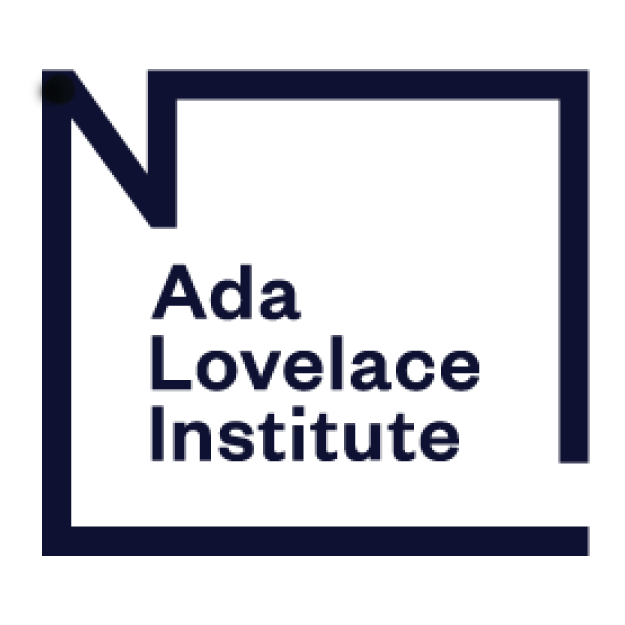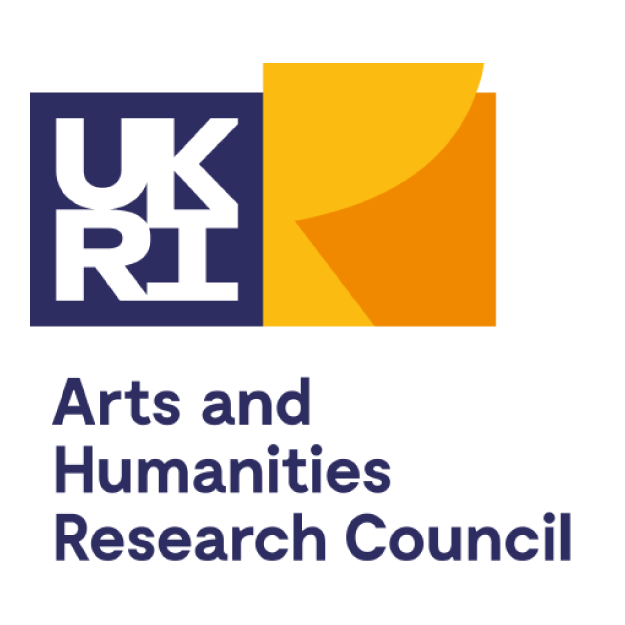The Advisory Board provides support and oversees the work of BRAID, ensuring the programme delivers its objectives.
For more information please see the Advisory Board Terms of Reference.
Abeba Birhane, Mozilla Foundation
Abeba Birhane is a cognitive scientist, currently a Senior Advisor in AI Accountability at Mozilla Foundation and an Adjunct Assistant Professor at the School of Computer Science and Statistics at Trinity College Dublin, Ireland. She researches human behaviour, social systems, and responsible and ethical AI – work for which she was recently featured in Wired UK and TIME on the TIME100 Most Influential People in AI list. Birhane also serves on the United Nations Secretary-General’s newly-convened AI Advisory Body.
Dawn Bloxwich, DeepMind
Dawn Bloxwich is the Director of Responsible Development & Innovation, a team focused on operationalising ethics and safety within Google DeepMind. Having worked at leading tech companies, such as IBM and Salesforce, she has driven the set up of Google DeepMind’s internal governance around ethics and safety, including overseeing how Responsible AI is embedded in the day to day operations of the organisation. Dawn also serves as an Advisory Board member for BRAID (Bridging Responsible AI Divides.
Emily Campbell-Ratcliffe, CDEI
Emily Campbell-Ratcliffe is Head of AI Assurance at the Centre for Data Ethics and Innovation (CDEI), an expert directorate in the Department for Science, Innovation and Technology (DSIT) that works on enabling responsible innovation in AI and data driven technologies. She is also part of the OECD.AI network of experts, contributing to their Expert Groups on AI Risk & Accountability, and Compute & Climate. Previously, she was a lead for the Centre’s AI monitoring function, looking at emerging transformative technologies, and has published work on the responsible publication of AI research, and how to manage its risks.
Sarah Cook, University of Glasgow
Sarah Cook is a curator, writer and researcher based in Scotland. She is Professor of Museum Studies in Information Studies at the University of Glasgow. From 2023 she is a guest professor in Art and AI with UmArts at University of Umeå as part of the WASP-HS programme. From 2013 to 2020 Sarah was one of the curators behind Scotland’s only digital arts festival NEoN Digital Arts and was founder/curator of LifeSpace Science Art Research Gallery in the School of Life Sciences, University of Dundee.
Benedict Dellot, Ofcom
Benedict is a Technology Policy Principal at Ofcom, where he leads a number of Ofcom’s AI-related projects and policy areas. This includes leading Ofcom’s preparations for the UK government’s new AI regulation framework, as well as the regulator’s approach to regulating the use of generative AI in the online safety regime. Benedict also oversees much of Ofcom’s research into the use of recommender systems by online services. Prior to joining Ofcom, Benedict was Head of AI Monitoring at the Centre for Data Ethics and Innovation, and previously worked at the Royal Society of Arts think-tank.
Virginia Dignum, GPAI/Umea University
Virginia Dignum is Professor of Responsible Artificial Intelligence at Umeå University, Sweden, where she leads the AI Policy Lab, and senior advisor on AI policy to the Wallenberg Foundations. She is a member of the United Nations Advisory Body on AI, the Global Partnership on AI (GPAI), UNESCO’s expert group on the implementation of AI recommendations, OECD’s Expert group on AI, founder of ALLAI, the Dutch AI Alliance, and co-chair of the WEF’s Global Future Council on AI. She was a member of EU’s High Level Expert Group on Artificial Intelligence and leader of UNICEF’s guidance for AI and children.
James Dracott, EPSRC
James leads the technical AI portfolio, with oversight for several the UK’s strategic initiatives; including the Responsible AI UK consortium, the Trustworthy Autonomous Systems programme, the Turing AI fellowships and the UKRI AI Centres for Doctoral Training. He leads the partnership between UKRI and the Alan Turing institute and works closely with government colleagues on future AI strategy. He has previously held roles including Head of Information and Communication Technologies and worked across research skills funding.
Ray Eitel-Porter, Accenture
Ray Eitel-Porter is Accenture’s Lead for Responsible AI. He joined Accenture in 2013 and has worked across many industries, focusing on data and AI. For the past six years he has developed Accenture’s solutions for data and AI ethics, advising clients and Accenture internally in this area. Ray led the formation of Accenture’s Strategic Partnership with The Alan Turing Institute and co-chairs the government’s Data Skills Taskforce. He initiated the first national data science prize for schools, in association with TeenTech. Ray holds an MA in Modern Languages from Christ Church, Oxford and an MBA from INSEAD.
Siân Lindley, Microsoft Research (UK)
Siân Lindley leads the Collaborative Intelligence group at Microsoft Research in Cambridge. The group focuses on how rapidly advancing ML-powered experiences can be designed in ways that augment and develop human capability, enable interconnectedness and collaboration, and support diverse needs and ways of working. Her key areas of interest are human-AI collaboration, content reuse and remix, and cross-application workflows. She has a PhD in Psychology from the University of York and an MSc in Human-Centred Computing Systems from the University of Sussex. She was a Lecturer at UCL before joining Microsoft in 2007.
Jocelle Lovell, Cwmpas Digital Communities Wales
Jocelle has worked extensively across Wales developing and overseeing the delivering of programmes, to address key social issues including lack of educational attainment, housing & homelessness, employability skills, financial and digital inclusion. As Director of Inclusive Communities at Cwmpas Jocelle leads a portfolio of work including community led housing, social care, Welsh language communities and Digital Communities Wales: Digital Confidence, Health and Wellbeing (DCW). Jocelle is passionate about cooperative values and believes that together people can create a fairer, more inclusive society.
Kathryn Magnay, EPSRC
Kathryn Magnay is currently a Deputy Director at EPSRC (Engineering and Physical Sciences Research Council) with responsibility for EPSRC’s ‘AI, Data and Digitalisation: Driving Value and Security’ priority. In this role Kathryn has led the UKRI wide review of Artificial Intelligence and works with Councils across UKRI to progress digital transformative technologies. Kathryn has previously been Head of Energy Technologies at EPSRC developing research and innovation programmes across the Energy sector and responding to opportunities presented by the Industry Strategy Challenge Fund (ISCF).
Maitreyi Maheshwari, FACT
Maitreyi Maheshwari is Head of Programme at FACT, Liverpool, one of the UK’s leading centres for film, art and creative technology. She is responsible for overseeing all exhibitions, residencies, learning projects and events. Previously, Maitreyi was Programme Director at Zabludowicz Collection, London. She has also been the curator of the Youth programme at Tate Modern and the Interaction programme at Artangel. She has an MRes in Cultural Studies and Humanities from the London Consortium, and an undergraduate degree in History of Art from Edinburgh University.
Aisha Naseer
Dr. Aisha Naseer is the acting Board Member of Women in AI (WAI) as well as their UK Ambassador, where she spearheads WAI’s global mission towards inclusive AI to empower women and minorities for the social good, encourage ethical applications and responsible use of AI. Dr Naseer is recognized globally for her contributions and was named among the “100 Brilliant Women in AI Ethics” (2022), “Global Women Leader in AI 2025” by 100 Women Davos, and spotlighted at the United Nations AI4Good Summit for her work on algorithmic fairness.
As the Director of Research at Huawei Technologies UK, she drives industry ecosystem development and AI standardization efforts in collaboration with European and international bodies.
Additionally, Dr Nazeer is a valued member of the MIT Sloan Management Review Responsible AI Expert Panel and a founding editorial board member of the Springer Journal on AI and Ethics as well as an active participant in the All-Party Parliamentary Groups (APPGs) setup by the UK Government.
Cecilia Nunn, Digital Catapult
Cecilia is the Lead Responsible AI Technologist at Digital Catapult located in London. With a background in software engineering and international humanities, she leads a team that focuses on implementing responsible AI in a practical manner. Driven by a mission to transform society through programming, design, and technology, she is particularly passionate about increasing the representation of women in AI. She both teaches and mentors women and girls across the tech industry. By combining her background in international relations and development, with her design and technical expertise, she bridges the gap between ethicists and engineers.
Abigail Sellen, Microsoft Research UK
Abigail Sellen oversees a portfolio of industrial research which takes an interdisciplinary approach to designing and developing new AI-infused technologies. One focus is ensuring that AI advancements are equitable and that our interactions with them are designed with a deep understanding of human values. Another is ensuring that our data centres are both efficient and sustainable through innovation across the whole stack. Abigail has a doctorate in Cognitive Science from the University of California, San Diego. She also has an MASc in Industrial Engineering from the University of Toronto.
Divya Siddarth, Collective Intelligence Project
Divya Siddarth is the co-founder of the Collective Intelligence Project, an experimental research organization that advances collective intelligence capabilities for the democratic and effective governance of transformative technologies. She was formerly Associate Political Economist and Social Technologist at Microsoft, and also holds positions at the Ethics in AI Institute in Oxford, the Ostrom Workshop, and the Plurality Lab at Harvard’s Safra Center for Ethics.
Dr Emma Stone, Good Things Foundation
Dr Emma Stone is Director of Evidence and Engagement at Good Things Foundation – the UK’s leading digital inclusion charity. Good Things runs the National Digital Inclusion Network, National Databank, National Device Bank, and Learn My Way – all free resources for communities to tackle digital exclusion. Emma’s work straddles policy, partnerships, research and thought leadership – and includes being a founding member of the Minimum Digital Living Standards team. Emma lives in Sheffield, which is also where Good Things has its HQ. Email: emma.stone@goodthingsfoundation.org LinkedIN: Emma Stone
Allan Sudlow, AHRC
Allan is Director of Partnerships and Engagement at the Arts and Humanities Research Council (AHRC). Allan directs strategic planning and delivery, alongside partnerships and engagement with a broad range of stakeholders including research organisations, government, business and public bodies. He oversees a large portfolio of activity with a focus on creative, cultural and heritage research, data, innovation and skills. Allan was previously Head of Research Development at the British Library and Co-Chair of the consortium of UK Research and Innovation (UKRI) sponsored heritage and culture research-active organisations.
Yorath Turner, Scottish Government
Yor Turner currently leads the development of the Digital, Data and Technology profession as well as initiatives responsible for building digital skills, capability, talent, and diversity across the public sector in Scotland, including through leadership of the Scottish Digital Academy and Digital Recruitment Service. He is responsible for leading on the Digital Strategy for Scotland, digital policy, and engagement functions as well as finance, procurement, and workforce for the Digital Directorate. In his spare time he is currently Chair of LGBT Health and Wellbeing, Scotland’s national charity promoting the health, wellbeing and equality of LGBTQ+ people (16+) in Scotland.
Jonathan Wolf, Office of AI
Jonathan Wolf leads on research and innovation policy in the AI Directorate in DSIT. Before pivoting to AI policy, Jonathan spent several years in AI startups working in between technical and commercial teams. Jonathan completed a PhD in philosophy at UCL.
Joanna Zylinska, King’s College London
Joanna Zylinska is a writer, artist, curator and Professor of Media Philosophy + Critical Digital Practice at King’s College London, and a member of Creative AI Lab. Zylinska is an author of a number of books and an editor of the MEDIA : ART : WRITE : NOW book series for Open Humanities Press. Her own art practice involves experimenting with different kinds of image-based media. She is currently researching perception and cognition as boundary zones between human and machine intelligence, while trying to map out scenarios for alternative futures.





